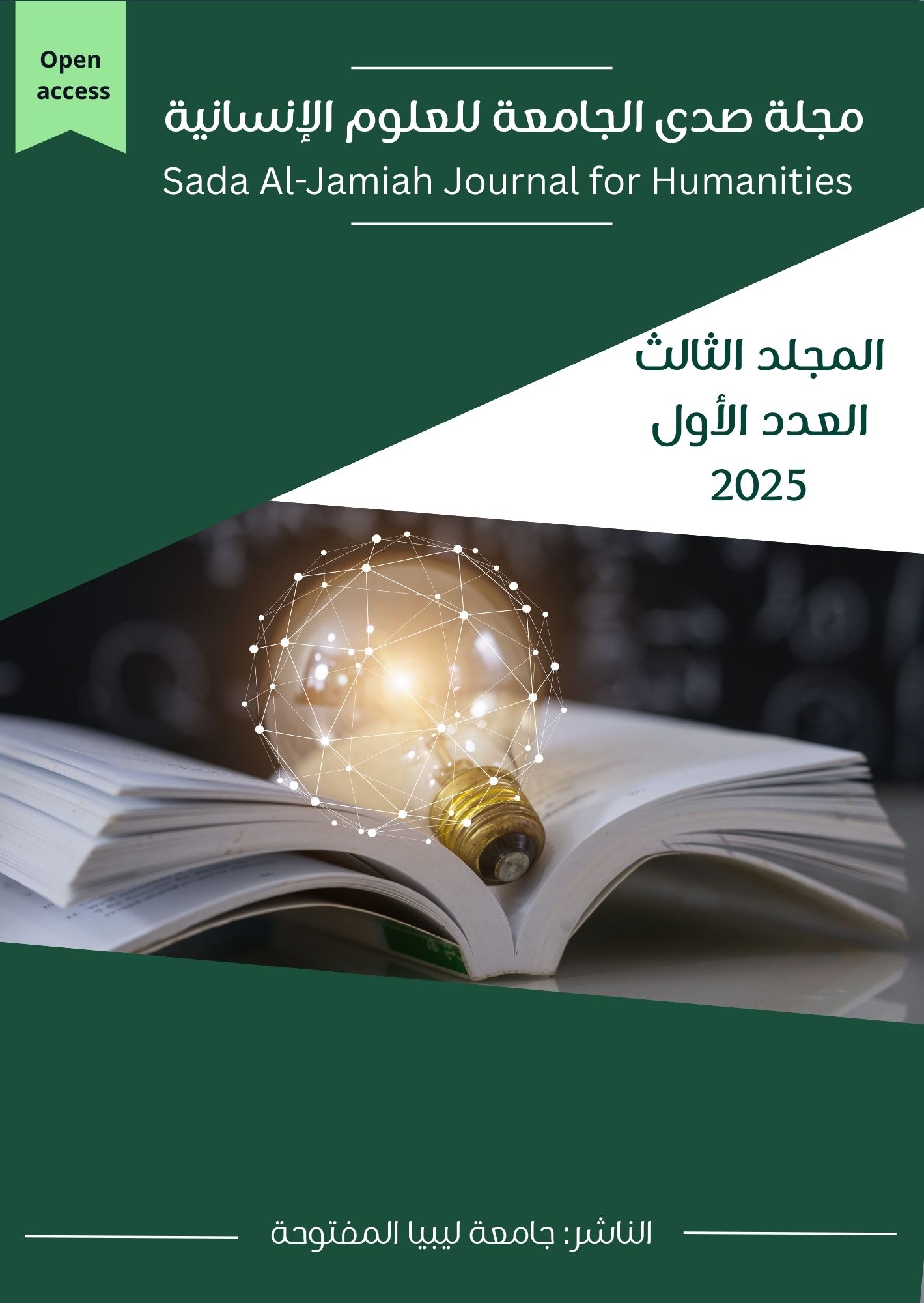الذكاء الاصطناعي في تدريس الكتابة الأكاديمية: رؤى من أساتذة الجامعات الذين يدرسون اللغة الإنجليزية كلغة أجنبية
DOI:
https://doi.org/10.65422/sajh.v3i1.76Keywords:
الذكاء الاصطناعي, الكتابة الأكاديمية في اللغة الإنجليزية كلغة أجنبية, وجهات نظر أساتذة الجامعات, تطبيقات الذكاء الاصطناعي التوليدية, تكامل التكنولوجيا التربوية, محو الأمية الرقمية في التعليم العالي, تحديات النزاهة الأكاديمية.Abstract
The integration of Artificial Intelligence (AI) into academia presents new dynamics for English as a Foreign Language (EFL) instruction. This qualitative study explores Libyan EFL university teachers' perspectives on the use of AI-driven tools to enhance undergraduate academic writing. Data were collected through semi-structured interviews with nine instructors, recruited via a purposive convenience sampling from two public universities. A thematic analysis revealed that teachers recognize AI tools as valuable assistants that provide immediate feedback on grammar and vocabulary, thereby promoting student autonomy. However, a central concern was that student overreliance can undermine the development of critical thinking and independent writing skills. Furthermore, the study identified critical impediments to implementation, including limited digital literacy, insufficient institutional support, and inadequate technological infrastructure. The findings suggest that for AI to be a transformative, rather than a limiting, force in Libyan EFL contexts, its integration must be supported by comprehensive teacher training and clear pedagogical guidelines that emphasize a balanced approach to writing instruction.








